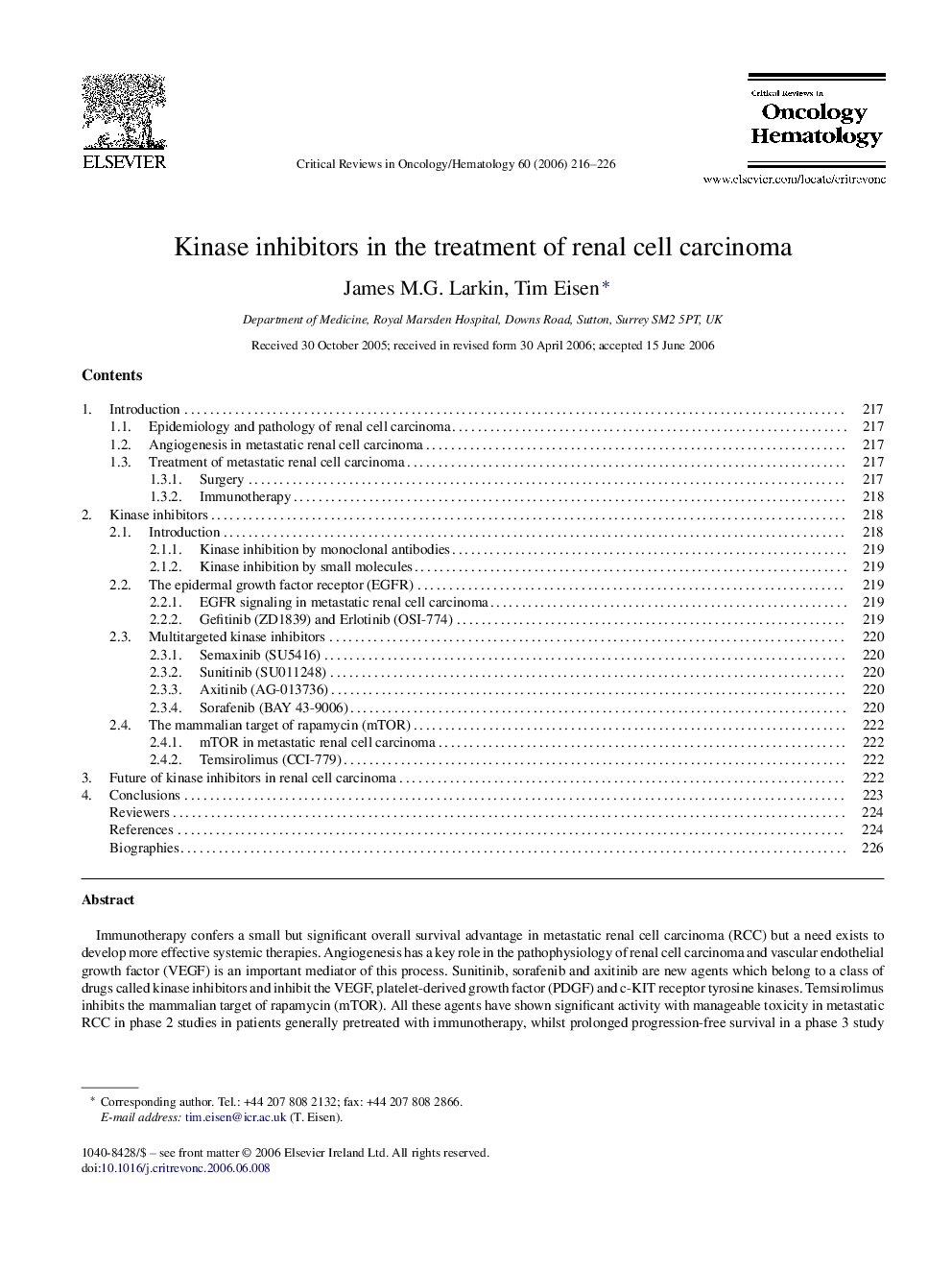| Article ID | Journal | Published Year | Pages | File Type |
|---|---|---|---|---|
| 3330154 | Critical Reviews in Oncology/Hematology | 2006 | 11 Pages |
Immunotherapy confers a small but significant overall survival advantage in metastatic renal cell carcinoma (RCC) but a need exists to develop more effective systemic therapies. Angiogenesis has a key role in the pathophysiology of renal cell carcinoma and vascular endothelial growth factor (VEGF) is an important mediator of this process. Sunitinib, sorafenib and axitinib are new agents which belong to a class of drugs called kinase inhibitors and inhibit the VEGF, platelet-derived growth factor (PDGF) and c-KIT receptor tyrosine kinases. Temsirolimus inhibits the mammalian target of rapamycin (mTOR). All these agents have shown significant activity with manageable toxicity in metastatic RCC in phase 2 studies in patients generally pretreated with immunotherapy, whilst prolonged progression-free survival in a phase 3 study has been reported with sorafenib in comparison with placebo. Further phase 3 trials are recruiting and the combination of kinase inhibitors with other therapies is under investigation.
